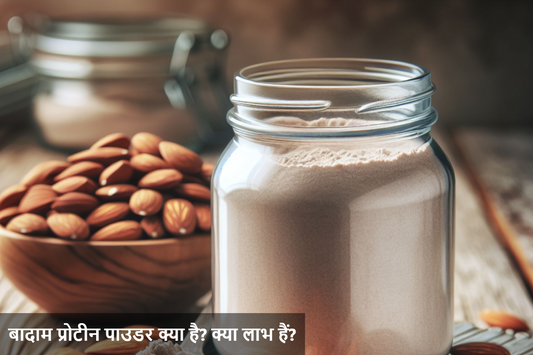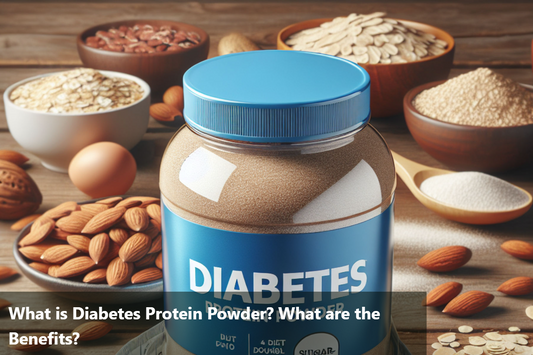Plant protein powder has gained significant traction in the health and fitness industry, attracting attention for its unique qualities and benefits.
Traditional protein powders are derived from animal sources like whey, and plant protein powder is extracted from plants such as peas, hemp, soy, and brown rice.
One of the key distinctions of plant protein powder is its suitability for vegan and vegetarian diets, making it an excellent alternative for individuals with specific dietary restrictions. Additionally, plant protein powder is recognized for its sustainable production methods, appealing to environmentally conscious consumers.
The rising popularity of plant protein powder can be attributed to its diverse types available in the market, including pea protein, hemp protein, soy protein, and brown rice protein. Each type offers a distinct nutritional profile, catering to varying health needs and preferences.
Incorporating plant protein powder into your diet can offer numerous health benefits, such as supporting muscle growth and repair, aiding in weight management, promoting heart health, and enhancing digestion. Its natural composition provides essential amino acids and nutrients crucial for overall well-being.
How Plant Protein Powder is Made
Plant protein powder is a versatile and popular dietary supplement that is derived from various plant sources like peas, hemp, soy, and brown rice. The process of creating plant protein powder involves extracting protein from these sources and transforming it into a convenient powder form that can be easily added to smoothies, shakes, or baked goods.
To begin with, the extraction process typically starts by milling the plants to break them down into smaller components. The protein is then separated from the other components, such as fiber and carbohydrates, through techniques like filtration or centrifugation. Next, the extracted protein undergoes drying methods like spray-drying or freeze-drying to remove moisture and create a fine powder.
Each plant source has its unique composition, which impacts the taste, texture, and nutritional profile of the resulting powder. For example, pea protein is known for its high digestibility and rich amino acid profile, while hemp protein is valued for its omega-3 fatty acids content. Soy protein is a complete protein source, containing all essential amino acids, and brown rice protein is hypoallergenic and easily digestible.
Types of Plant Protein Powder
Plant Protein Type |
Source |
Composition |
|---|---|---|
Soy Protein Isolate |
Derived from soybeans. |
- Suitable for vegetarians and vegans. - High protein content. - Low in fats and carbohydrates. - Contains phytoestrogens for potential hormone regulation. |
Hemp Protein |
Derived from hemp seeds. |
- Rich in essential fatty acids. - Contains all nine essential amino acids. - High fiber content. - Low in carbohydrates. - Generally well-tolerated and easy to digest. |
Almond Protein |
Derived from almonds. |
- Plant-based protein source. - Contains healthy fats, vitamins, and minerals. - Low in carbohydrates. - Provides dietary fiber. - Suitable for individuals with nut allergies. |
Brown Rice Protein |
Derived from brown rice. |
- Hypoallergenic and gluten-free. - Can be combined with other plant-based proteins for a complete amino acid profile. - Low in fats and carbohydrates. |
Health Benefits of Plant Protein Powder
1. Rich in Essential Nutrients
Protein: Plant protein powders are rich sources of protein, essential for muscle repair, growth, and overall body function. Vitamins and Minerals: Many plant protein sources contain vitamins, such as Vitamin E and Vitamin B, and minerals like magnesium, iron, and potassium, which are vital for various physiological processes.
2. Heart Health
Low in Saturated Fat: Plant protein powders are typically low in saturated fat, reducing the risk of heart disease. High in Unsaturated Fats: Some plant protein sources, like almonds and hemp seeds, contain healthy unsaturated fats, such as omega-3 and omega-6 fatty acids, which support heart health.
3. Weight Management
Satiety: Protein-rich plant protein powders help increase feelings of fullness, reducing overall calorie intake and aiding weight management efforts. Low in Calories: Plant protein powders are often lower in calories compared to animal-based protein sources, making them suitable for weight-conscious individuals.
4. Digestive Health
High in Fiber: Plant protein sources like hemp seeds and brown rice protein powder are rich in dietary fiber, promoting digestive health and regular bowel movements. Gut Microbiome: Fiber-rich plant foods also support a healthy gut microbiome, which is essential for overall well-being.
5. Blood Sugar Regulation: Many plant protein sources have a low glycemic index, leading to slower and more stable blood sugar levels, making them suitable for individuals with diabetes or those seeking blood sugar control.
6. Bone Health
Calcium: Some plant protein sources, such as almonds, contain calcium, which is crucial for bone health and reducing the risk of osteoporosis. Magnesium: Plant protein powders often contain magnesium, another essential mineral for bone health and muscle function.
7. Allergy-Friendly: Plant protein powders are hypoallergenic and suitable for individuals with common food allergies or sensitivities, such as lactose intolerance or gluten sensitivity.
8. Environmental Sustainability: Producing plant protein powders typically has a lower environmental footprint compared to animal-based protein sources, making them a more sustainable choice for environmentally-conscious consumers.
9. Versatility: Plant protein powders are versatile ingredients that can be incorporated into a wide range of recipes, including smoothies, baked goods, soups, and more, adding protein and nutrients to meals and snacks.
Bottomline
Exploring the various types of plant protein powders sheds light on the diverse options available to consumers and their unique compositions. From pea protein to hemp protein, each type offers specific nutritional advantages that cater to different dietary needs.
The health benefits associated with plant protein powder, including supporting muscle growth, aiding weight loss, promoting heart health, and improving digestion, underscore its significance in maintaining a balanced and healthy diet. Incorporating plant protein powder into daily meals can undoubtedly contribute to overall well-being and vitality.
This Blog post is an initiative by DiabeSmart, to provide accurate and Nutritionist / Doctor approved information related to Diabetes. DiabeSmart is India's first Food brand designed specifically for Diabetics, that has been clinically tested on Diabetics and Pre-Diabetics to deliver 55% - 70% lower Sugar spikes. DiabeSmart is part of Lo! Foods - India's leading brand for Everyday Functional Health foods.











